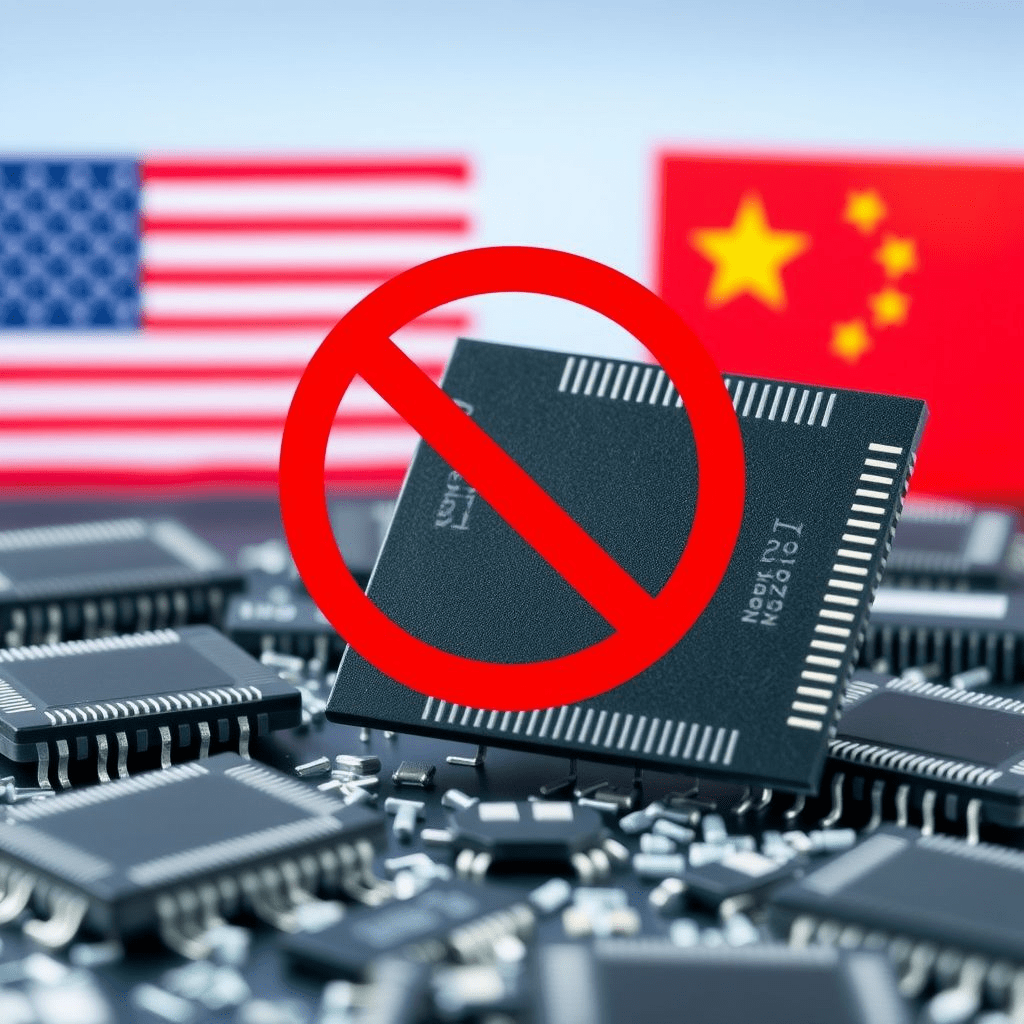Introduction
The global semiconductor supply chain is once again at the center of geopolitical turbulence. In early September 2025, the U.S. Commerce Department revoked Taiwan Semiconductor Manufacturing Company’s (TSMC) authority to autonomously ship certain chipmaking equipment to its Chinese plants. The decision extends to Samsung Electronics and SK Hynix, two South Korean giants deeply reliant on U.S. technology.
The U.S. chip export ban to China is the latest escalation in Washington’s long-running bid to slow Beijing’s advance in advanced semiconductors—a sector critical not only to consumer electronics but also to military and AI applications.
Background: The Tech Cold War
The U.S. has been tightening controls on semiconductor exports since 2019, first targeting Huawei, later restricting AI chips like Nvidia’s A100, and now broadening oversight of advanced equipment. Washington’s stated aim is national security, but the strategic undertone is clear: prevent China from closing the gap in high-end chipmaking.
China, for its part, has invested heavily in homegrown alternatives, but despite progress, equipment dependency remains a bottleneck. Without access to U.S.-designed lithography and process technology, Chinese fabs risk falling years behind.
What Changed in September 2025
Previously, companies like TSMC enjoyed exemptions that allowed them to ship essential chipmaking equipment to facilities in Nanjing. That autonomy has now been revoked.
- TSMC: Will need U.S. approval for any equipment transfer to China.
- Samsung & SK Hynix: Facing similar hurdles, complicating their Chinese fab operations.
- Chinese semiconductor ambitions: Expected to be delayed significantly in advanced node adoption.
This decision coincides with a broader U.S. push to reshore semiconductor manufacturing domestically, with subsidies under the CHIPS Act now totaling over $50 billion.
Expert Commentary
Industry analysts stress the significance.
- Kevin Wu, semiconductor strategist: “This isn’t just about slowing China—it forces global companies to reconsider where they build capacity.”
- Elena Park, South Korea trade analyst: “Samsung and Hynix are caught in the middle—balancing U.S. compliance with dependence on Chinese markets.”
Investors also reacted swiftly: shares of TSMC dipped 3% in Taipei trading, while U.S. semiconductor equipment makers like Applied Materials saw modest gains.
Impact on the Semiconductor Supply Chain
- Short-term disruptions
- Shipments of high-end equipment are delayed.
- Chinese clients may face shortages in advanced chips for AI and 5G applications.
- Medium-term shifts
- Production relocation: Firms may divert investment to neutral regions like Vietnam, India, or Malaysia.
- Increased costs: Compliance and rerouting raise capex for multinationals.
- Long-term outcomes
- Tech bifurcation: The world risks splitting into U.S.-led and China-led chip ecosystems.
- Self-sufficiency race: China will double down on domestic semiconductor R&D.
Parallel Story: Google & Alphabet Boost
Interestingly, on the same day news of the ban broke, Alphabet gained nearly 6% after a U.S. court allowed it to maintain Chrome distribution deals. While unrelated, the juxtaposition underscores how regulatory decisions are shaping technology markets in multiple directions simultaneously.
Broader Geopolitical Significance
The U.S. chip export ban to China fits into a larger strategy of tech containment. Alongside AI model restrictions, cloud partnership scrutiny, and export license delays, the semiconductor battlefield is becoming a central front in the global power struggle.
China’s Ministry of Commerce criticized the move, calling it “economic coercion.” Meanwhile, U.S. allies like Japan and the Netherlands, both crucial suppliers of lithography equipment, are under pressure to align with Washington.
Future Outlook
- China’s domestic R&D push: Expect accelerated investment in indigenous equipment makers like SMEE.
- Allies’ balancing act: South Korea and Taiwan must walk a tightrope between compliance and market access.
- Global ripple effects: Consumer electronics, from smartphones to servers, may face supply delays if bottlenecks persist.
- Potential retaliation: Beijing could restrict exports of rare earths and critical materials needed for global electronics.
Conclusion
The U.S. chip export ban to China marks another escalation in the ongoing tech cold war. With TSMC, Samsung, and SK Hynix caught in the crossfire, the world’s most advanced semiconductor supply chains are being redrawn. The outcome will likely reshape not only chip markets but also global economic and geopolitical balances for years to come.







